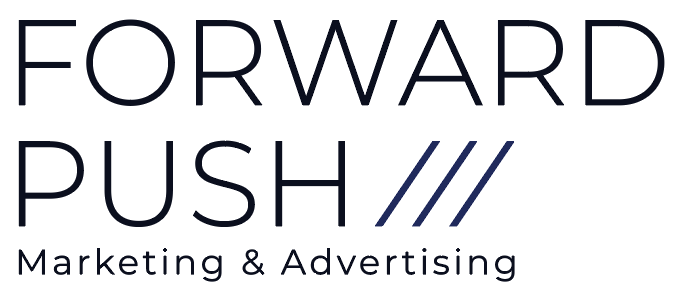All industries can benefit from marketing, but real estate agents have a unique opportunity to maximize social media, email marketing, their website, and other strategies to build relationships with current and potential clients. The stronger your relationships are, the more likely you’ll be to grow your business through referral and non-referral leads.
Let’s get started with the foundation of every online presence: your brand.

Build Your Personal Brand
Your online presence needs to be more than the houses you sell. It’s how you serve clients and integrate yourself into your farm area. Build your brand around being the local expert who provides up-to-date, helpful information and people will remember you.
Promote local events, hot new restaurants, interior designers, and other highlights that are unique to your area. The more you associate yourself with these characteristics, the more value you’ll provide to your audience and the more likely they’ll be to call you when looking to buy or sell.
Once you’ve established who you want to be online, back it up with your social media presence.

Be Active on Social Media
Social media requires a strategy with a personal touch. After all, it’s a place where people come to get to know each other. It’s, well, social! Integrate your interests with real estate-related content and the occasional “just sold” post. We say occasionally because, while it shows you’re good at your job, it doesn’t provide as much value to potential future clients.
Instead, rotate through content about local events, home buying tips, and interior design inspiration. Create Pinterest boards with different interior design styles for clients to reference, repost local interior designers images (with permission) on Instagram, and share a client-focused market update on Facebook.
Choosing the Right Social Media Platforms
We often hear from realtors that they don’t have time for all the platforms, or that they aren’t seeing any progress. It’s tricky, especially as Facebook and Instagram decrease engagement. It’s not the time to give up, though. You just need a switch.
When you focus on where your audience lives online, you’ll succeed on social media. If you’re targeting millennials moving for tech industry jobs, test Twitter. If you want to work with Gen X-ers looking to downsize, Facebook and Pinterest may be the right choice.
Test a platform with consistent content for at least three months, and then determine how you can further evolve from there.
As helpful as social media can be in real estate, there’s another asset you need to focus on.

Invest in Your Website
Your website is one of the few marketing resources you own. It’s an asset you have complete control over, unlike your social media profiles. Make sure your website is an asset for your potential client, especially if you’re targeting first-time home buyers. Include information like how to find a mortgage lender, how to find the right realtor and other FAQ-style topics that you hear often.
That’s not all you need for a functional, helpful website. We recommend that every realtor’s website have three critical elements:
- A search feature for current listings.
- An easy way to contact them.
- A concise bio with a recent, high-quality headshot.
Remember when we talked about building local expertise into your personal brand? Your website is a part of this. Write blog posts about top interior designers, and email the designers you list to let them know you’ve included them. You’ll want to word this delicately, because your goal shouldn’t be to guilt them into sharing or linking to it. You’re building relationships, not a quid pro quo situation.
Our next marketing tip utilizes a very important resource: your address book.

Utilize Email Marketing
Much like your website, email marketing uses assets that you own: email addresses. And while it make take some time for someone to give you their email address, it grants you direct access to them through their inbox.
It’s also one of our favorite non-referral ways to generate leads. In fact, email marketing can provide a nearly $40 return on every dollar spent compared to other marketing channels. Create a free guide to your neighborhood, and offer it to your audience in exchange for their email.
This requires building a simple landing page on your website with a form to get their name and email. Once they submit their information, you can setup an automatic email to deliver the guide through your email services provider like MailChimp.
After people are added to your list, send a personal follow up without an “ask”, and include them on monthly newsletters on local events, interior design tips, and recent listings. Again, the goal is to stay top of mind and to add value before asking for anything in return.
Once the relationship is built, the contract signed, and the move complete, ask clients for a testimonial.

Use Testimonials Throughout Your Online Presence
Testimonials offer social proof with more value than promoting yourself. This social proof shares the best parts of working with you
When asking past clients, both buyers and sellers, to offer a testimonial, ask them to be specific about what made working with you a great experience. It could be your communication, listening to their needs, or something else; whatever it is, capitalize on it! Share these on your website and on social media to provide that social proof that will increase your chances of signing new clients.
If you’re active on Facebook, Google My Business, and Yelp, you can pull reviews from there to place on your website or to use in social media posts. You’ll also want to make sure that you follow each platform’s guidelines for soliciting reviews.
Facebook and Google My Business allow business owners to ask for reviews as long as there are no incentives. (For example, no free gift in exchange for leaving a review.) The only way you can ask for Yelp reviews while remaining within their Terms of Service is to say, “Check us out on Yelp!” This may sound like a small distinction, but it can severely impact your online presence if the platform sees that you’re breaking their Terms of Service.
Not all marketing should be done online, though. Our last tip is an offline type of marketing that focuses on building mutually beneficial relationships in person.

Build Relationship with Local Recruiters
While this tip doesn’t directly include social media or email marketing, building strong relationships with recruiters can help you grow your company. When recruiters help get out-of-town candidates hired, they can refer you as the new employee begins to moving process.
Make sure you focus on how you can help them before asking for anything in return. Send articles or books they would be interested in, send them a card during the holidays, and if you can facilitate a connection for them, do it. Focus on helping them and staying top of mind, then they’ll be likely to send you referrals.
Marketing Help for Realtors
Whether online or offline, these marketing tips can help you grow your real estate business and help more homeowners and buyers in your area. Always remember to provide value and build relationships while staying top of mind; the rest will come naturally. If you’re looking for a marketing team experienced in helping realtors grow their business through relationship-focused marketing, give us a call at (415) 640-8009.


